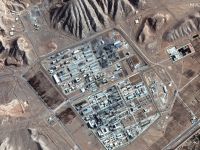US President Bill Clinton still sees a deal emerging from the two-week-old Camp David Middle East summit, the White House said Monday, but a senior Palestinian official gave a gloomier account of peace prospects.
After working until just before dawn Monday with Israeli and Palestinian negotiators, Clinton got a few hours of sleep before plunging in once again into the details of a possible agreement.
"I think the fact that he was up till 5:00 a.m. working through the issues in a very personal, hands-on way, and that he was back at it again this morning, should lead you to believe that he thinks staying here for the time being is worthwhile," spokesman Joe Lockhart told reporters at the summit press center.
He said Clinton had met with his own Middle East team and was then to see Israeli and Palestinian negotiators during the day Monday.
But he added the president had no sessions scheduled with Israeli Prime Minister Ehud Barak or Palestinian President Yasser Arafat, with whom he conferred separately late Sunday.
Clinton is now trying to gauge chances for peace in what Lockhart termed "a rolling assessment," Lockhart said.
"The president ... is working on what I'll call a rolling assessment of whether the substance and atmosphere at these talks are one that potentially could lead to an agreement.
"While that is the case, and while the president believes that the discussions are substantive and have the potential of leading to an agreement, he will remain here and he will keep the parties here to keep working."
Arafat, Barak and their teams are still deeply divided over a variety of issues that need to be resolved in order to end the more than 50-year Israeli-Palestinian conflict, the most difficult of which is the future status of east Jerusalem, where both sides claim sovereignty.
And a Palestinian official close to the talks told AFP Monday that "there is no real indication in the present situation that would allow us to say there will be an agreement."
He said that until now the Israelis "are not offering any kind of sovereignty or administration on the areas adjacent to the Old City," where sites revered by Muslims, Christians and Jews are located, "and only administrative control over Palestinian neighborhoods in east Jerusalem."
"The Palestinians reject this absolutely and are still asking for total sovereignty over east Jerusalem," he added.
Israeli and Palestinian negotiators, who first signed a framework peace agreement in 1993, are working against a September 13th deadline, a date on which Arafat has vowed to declare an independent Palestinian state with east Jerusalem as its capital.
Israel occupied the eastern sector in the 1967 Middle East war and has proclaimed the entire city to be its eternal and undivided capital, a position never recognized by the international community.
The Palestinians are insisting on full sovereignty over east Jerusalem, which they see as part of the Arab territories that Israel occupied in 1967 and is now bound to return under United Nations resolutions.
There were also signs Monday that Arab leaders and press commentators were paying close attention to the debate over Jerusalem now underway at Camp David, anxious to fortify Arafat against making concessions that could compromise Palestinian sovereignty claims.
During an unannounced visit to Saudi Arabia, Egyptian President Hosni Mubarak joined Saudi Crown Prince Abdullah in pledging "absolute support" to Palestinian demands for sovereignty over east Jerusalem, the authoritative Egyptian newspaper Al-Ahram reported Monday.
In the United Arab Emirates the Al-Ittihad newspaper argued that "the question of Jerusalem must figure at the top of any accord because of the importance of the city, not only for the Palestinians but also for all Arabs and Muslims." -- THURMONT, Maryland, (AFP)
© 2000 Al Bawaba (www.albawaba.com)







